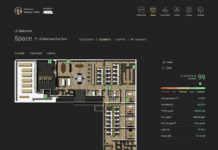COVID-19 and its variants remain top of mind for American workers, with 73% of respondents saying they were at least somewhat concerned about contracting the virus as a consequence of poor IAQ at work.
The majority of survey respondents also reported being at least somewhat concerned about the following additional consequences of poor IAQ in the workplace:
- Allergy symptoms: 71%
- Viruses other than COVID-19: 68%
- Headaches: 66%
- Fatigue: 65%
“The results of our survey are clear — most American workers understand the health risks of poor IAQ and the benefits of working in very clean air,” said John Fellowes, fourth-generation CEO of Fellowes Brands. “Businesses that invest in improving their IAQ with air purification, HVAC improvements and increased ventilation will reap rewards with a healthier, happier and more productive workforce at a time of great competition for the best talent.”
Pennsylvania Community To Improve IAQ, Save Projected $2.9M
 An Energy Performance Contracting program from ABM will improve indoor air quality across multiple Green County, PA facilities.
An Energy Performance Contracting program from ABM will improve indoor air quality across multiple Green County, PA facilities.Indoor air purification with H13 True HEPA filters can remove 99.95% of particles as small as 0.1 microns, including allergens, such as pollen, dust, pet dander, and smoke that can lead to poor IAQ and associated health risks. Improved IAQ also lowers risk of stroke, lung cancer, respiratory disease, and other health concerns.



















![[VIDEO] Collect Asset Data at the Speed of Walking a Building](https://facilityexecutive.com/wp-content/uploads/2024/02/maxresdefault-324x160.jpg)